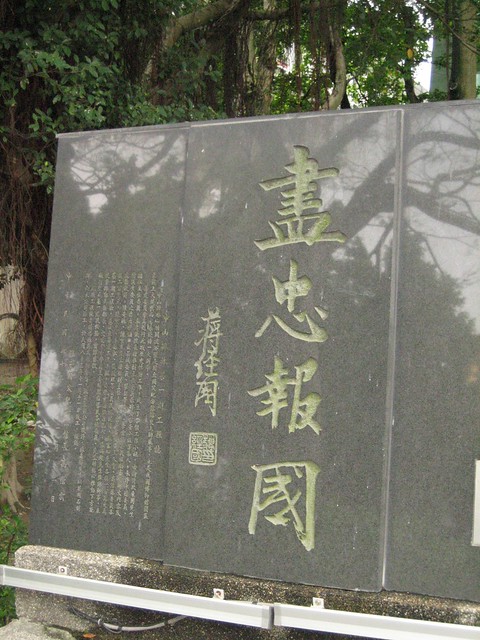I believe jobjeb got it right, and that's the "direct" cause of the differences between thoudsand years ago Yue Fei's tatoo and modern time people's artistic slogan.
The "indirect" cause, is that in Chinese culture the offspring (the modern people) CAN NOT claim, or self-dramatizing, or "artisticly expressing the commitment" - exactly like the ancestry (the older generation, despite 100 generations older or 1 generation older).
It can not be exactly the same, it's considered an offense to the ancestry if you do so. It's like self-dramatizing that you are as good as the ancestor's greatness (even you are good, you can not yelling about it). I suppose modern USA president would look George Washington in high respect that in no condition (especially in front of a TV) LOOK LIKE he is comparing himself to George Washington - That's the culture, universally.
Now, a modern general (or in this case, chief commander of 国民革命军,国军 Nationist Revolutionary Army, 蒋经国 Jiang Jingguo), trying to leave his mark to motivating his troops, in no condition it shall looks like he is comparing himself to a great historical figure Yue Fei (Yue Fei's mother actually), so the artistic expression, shall not be exactly like Yue Fei's - You can quote exactly Yue Fei's mark 精忠報國 in a book or a classroom, but since you are now making your own mark, you are not considered quoting if you write the exactly same 精忠報國, but to self-comparing to Yue Fei (and that's reputation suicide in Chinese culture), the modern people have to play the trick to chaning one character and remains almost the same meaning - thus the “盡忠報國”.
The other situation is, you don't say exactly "the other guy" said. I found interesting when I in Singapore, during election period, there is this expression that the government shall "serve the people" in great care. While "Serve the people" looks alright in English - in Chinese, “为人民服务” is like CCP's exclusive slogan and it is damn sure no Singaporean party can afford to LOOKS LIKE CCP. So at Chinese language news paper, they use the term: 为民众服务.
避讳 (avoid the subtle indication) is universal culture.











